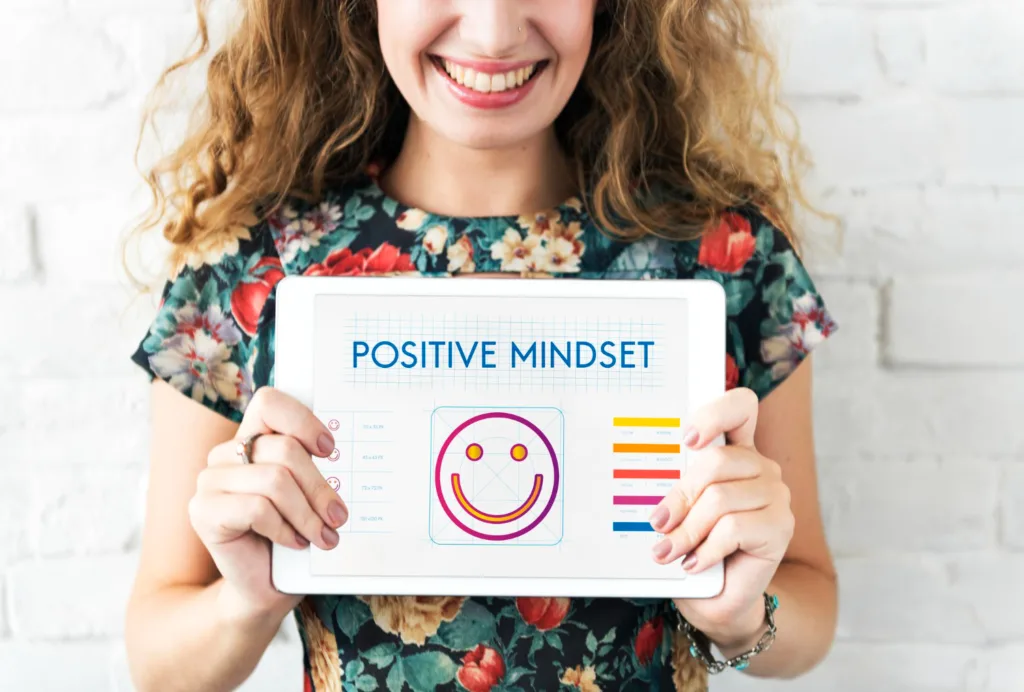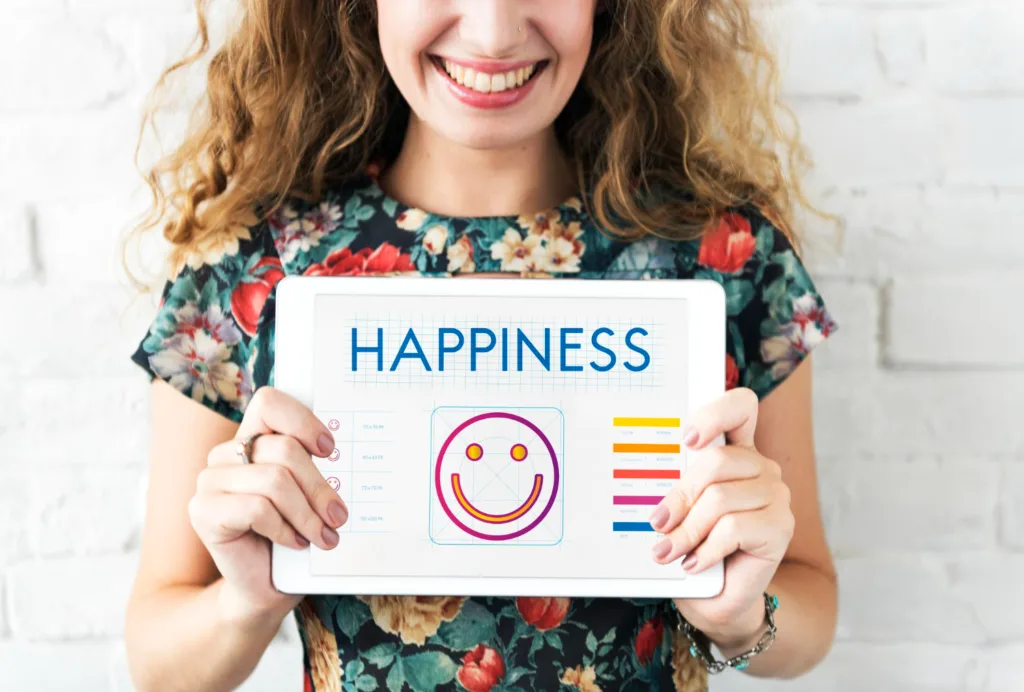How to Handle Emotions Better: 5 Powerful Strategies and Practical Tips to Control your Emotions!
“Master Your Emotions! 5 Tips to Handle Emotions Better”
How to Handle Emotions Better- Introduction:
We all experience emotions – joy, sadness, anger, frustration. They’re a normal part of life. But sometimes, emotions can feel overwhelming, leading to reactions we later regret. If you’re tired of letting your emotions control you, you’re not alone.
This article is your guide to How to Handle Emotions Better. We’ll explore powerful strategies and practical tips to equip you with the tools to manage your emotions effectively and live a more balanced life. Buckle up and get ready to take control of your emotional well-being!
Emotional Regulation:
Emotional regulation is a vital skill that allows us to navigate and handle our feelings effectively. It involves understanding our emotions, recognizing their triggers, and finding healthy coping mechanisms to manage them. In this article, we will explore five powerful strategies and practical tips to help you handle your emotions better, enhancing your emotional intelligence and well-being.
Key Takeaways:
- Uncontrolled emotions can negatively impact our mental and emotional well-being.
- Emotional regulation involves understanding and managing our emotions in a healthy and productive way.
- By implementing the strategies and tips provided in this article, you can improve your emotional control and overall mental health.
- Recognizing your emotional triggers, practicing deep breathing, and developing emotional awareness are essential steps in handling your emotions effectively.
- Seeking social support, practicing mindfulness, and journaling your feelings can contribute to better emotional management.
The Influence and Impact of Emotions on Our Lives
Emotions hold a significant influence over our lives, shaping our decisions and the quality of our relationships. Understanding the impact of emotions on our decision-making process and relationships is essential for achieving emotional well-being.
Uncontrolled emotions can exact a high price, affecting our mental and physical health, as well as straining the connections we have with others.
The Role of Emotions in Decision-Making and Relationships
Emotions play a vital role in the choices we make and the actions we take. Whether we are aware of it or not, our emotions color our judgment and guide our decision-making process. When faced with a choice, our emotions can lead us to favor certain alternatives over others.
For example, feelings of excitement may push us towards taking risks, while fear may cause us to shy away from unfamiliar situations. It is crucial to recognize the influence of emotions on our decisions and consider how our emotional state may impact the outcomes.
Beyond Reactions: Mastering How to Handle Emotions Better
In addition to decision-making, emotions also shape the quality of our relationships. How we feel and express our emotions can either foster or hinder meaningful connections.
Positive emotions, such as love, joy, and empathy, can strengthen relationships by fostering trust, understanding, and open communication.
Conversely, uncontrolled negative emotions, such as anger, jealousy, or resentment, have the potential to strain relationships, erode trust, and create emotional distance between individuals.
Recognizing the Cost of Uncontrolled Emotions
Uncontrolled emotions can take a toll on our well-being and have far-reaching consequences. When we allow our emotions to dictate our actions without deliberate regulation, the outcomes can be detrimental.
Strained relationships, decreased productivity, and compromised mental health are among the costs of uncontrolled emotions. It is essential to develop strategies for emotional regulation to mitigate these negative effects and foster healthier and more fulfilling lives.
How to Handle Emotions Better: Emotional Regulation Versus Suppression

Emotional regulation and emotional suppression are two distinct ways of handling our emotions. While they may seem similar, understanding the difference between these two approaches is essential for our overall emotional well-being.
Emotional regulation involves acknowledging, understanding, and managing our emotions in a healthy and productive manner. It enables us to recognize and express our feelings appropriately, while also finding effective coping mechanisms to deal with emotional challenges.
By practicing emotional regulation, we can enhance our emotional intelligence and improve our ability to navigate difficult situations.
Unlocking Emotional Control: The Strategies to Handle Emotions Better
On the other hand, emotional suppression involves repressing or ignoring our emotions. We may try to push down our feelings, pretending they don’t exist or avoiding situations that trigger them.
While emotional suppression may provide temporary relief or allow us to maintain composure in certain contexts, it can lead to negative psychological and physical effects in the long run. Bottling up emotions can contribute to increased stress, anxiety, and even physical ailments.
The Art and Science of How to Handle Emotions Better
It’s important to note that emotional regulation does not mean denying or suppressing our emotions. Instead, it involves understanding and accepting them, while taking proactive steps to manage them in a healthy way.
By acknowledging and working through our emotions, we can build resilience and develop effective strategies for coping with life’s challenges.
By recognizing the difference between emotional regulation and suppression, we can make informed choices about how we handle our emotions.
Striving for emotional regulation allows us to cultivate self-awareness, emotional control, and ultimately, a healthier and more balanced emotional state.
How to Handle Emotions Better: Identifying Your Emotional Responses
Recognizing and identifying our emotions is an essential step in effectively handling them. Developing emotional awareness allows us to understand why we feel a certain way and how to manage those emotions. By recognizing our emotional responses, we can gain insights into our thoughts, behaviors, and overall well-being.
One technique that can help us identify our emotional responses is mindfulness. Practicing mindfulness involves being fully present and aware of our thoughts, feelings, and bodily sensations in the present moment.
This heightened awareness can allow us to observe our emotions without judgment or attachment, enabling us to gain a clearer understanding of the specific emotions we are experiencing.
Looking Inward: How Self-Reflection Can Help You Handle Emotions Better
Self-reflection is another valuable tool for identifying our emotional responses. Taking time to reflect on our thoughts, feelings, and behaviors provides an opportunity to explore the underlying emotions driving our actions.
Whether through journaling, meditation, or quiet contemplation, self-reflection can help us become more in tune with our emotional states.
It is important to remember that identifying our emotions is a personal journey, and it may take time and practice to develop this skill.
By incorporating mindfulness and self-reflection into our daily lives, we can cultivate emotional awareness and enhance our ability to handle emotions effectively.
Why Accepting Your Emotions Can Lead to Better Management
Accepting our emotions without judgment or resistance is essential for effective emotional management. Emotion acceptance allows us to process and understand our emotions, leading to better emotional control.
When we accept our emotions, we acknowledge their presence and give ourselves permission to feel them fully. This acceptance creates space for us to explore our emotions and gain valuable insights from them. Instead of suppressing or avoiding our emotions, we can learn to embrace them as part of our human experience.
How to Handle Emotions Better: The Power of Emotion Acceptance
Emotion acceptance is a powerful tool for managing our emotional well-being. It involves acknowledging and validating our emotions without self-criticism or judgment.
Accepting our emotions allows us to tap into our inner wisdom and intuition. By accepting our emotions, we can develop a deeper understanding of ourselves and our needs.
Emotion acceptance also fosters self-compassion. When we accept our emotions, we extend kindness and understanding to ourselves. We recognize that experiencing a wide range of emotions is normal and human. This self-compassion helps us navigate challenging emotions with greater ease and resilience.
Unclouding Your Judgment: How Emotion Acceptance Leads to Better Decisions
Furthermore, emotion acceptance facilitates effective problem-solving and decision-making. When we accept our emotions, we can approach problems with clarity and objectivity. Rather than being overwhelmed by our emotions, we can engage in thoughtful analysis and make informed choices.
By embracing emotion acceptance, we empower ourselves to transform our emotional experiences into opportunities for growth and self-discovery.
Reframing Emotional Experiences for Life Satisfaction
Reframing our emotional experiences is another valuable aspect of emotion acceptance. It involves shifting our perspective and finding new meaning in challenging situations. When we reframe our emotional experiences, we can find silver linings, lessons, and growth opportunities.
For example, if we encounter a setback or failure, instead of dwelling on the negative emotions associated with it, we can reframe the experience as a learning opportunity.
We can ask ourselves what lessons we can extract from the situation and how it can contribute to our personal growth.
Finding the Silver Lining: Reframing Emotions for a More Fulfilling Life
Reframing our emotional experiences is especially crucial for cultivating life satisfaction. When we can find meaning and purpose in all aspects of our lives, including the challenging ones, we can experience a deeper sense of fulfillment and contentment.
By accepting our emotions and reframing our emotional experiences, we can foster emotional well-being and find greater satisfaction in life.
How a Mood Journal Can Help with Emotional Management
Keeping a mood journal can be a powerful tool for managing and understanding our emotions. By regularly journaling our feelings, we can gain valuable insight into our emotional experiences and develop a deeper understanding of our own emotional well-being.
A mood journal allows us to track patterns and identify triggers that influence our emotions. By recording our daily thoughts and feelings, we can start to see connections between certain events or situations and our emotional responses. This awareness can help us proactively manage our emotions and make informed decisions about our emotional well-being.
Unveiling Your Emotional Landscape: The Power of Journaling
Journaling our emotions also provides a safe space for self-reflection. It allows us to express and process our feelings in a non-judgmental way. By writing about our emotions, we can gain clarity, release pent-up feelings, and find solace in self-expression.
In addition, a mood journal can serve as a record of our emotional journey over time. By looking back at previous entries, we can track our progress, identify areas of growth, and recognize patterns in our emotional patterns. This retrospective view gives us the opportunity to celebrate our successes and learn from our challenges.
Unlocking Your Emotional Intelligence: The Benefits of Mood Journaling
To get started with a mood journal, find a notebook or a digital platform that suits your preference. Set aside a few minutes each day to reflect on your emotions and record them in your journal. Be honest and open with yourself and remember that there is no right or wrong way to journal your emotions.
By incorporating a mood journal into our daily routine, we can develop a deeper understanding and awareness of our feelings, which can ultimately lead to better emotional management and overall well-being.
Deep Breath Techniques for Immediate Emotional Relief
When we find ourselves overwhelmed by intense emotions, deep breathing techniques can provide immediate relief and help us regain control. Deep breaths activate the body’s relaxation response, calming the nervous system and reducing stress levels.
By practicing deep breath techniques regularly, we can develop a sense of emotional regulation, enabling us to manage our emotions more effectively. Deep breathing involves taking slow, deliberate breaths, focusing on the inhalation and exhalation process.
4-7-8 Breathing: A Simple Technique for Focus, Relaxation, and Inner Balance
This intentional breathwork helps to shift our focus from our emotional state to the present moment, promoting a sense of calm and inner balance.
Try the 4-7-8 breathing technique for relaxation. Inhale through your nose for 4 seconds, hold for 7 seconds, and exhale through your mouth for 8 seconds with a whoosh sound. Repeat 3 times. It can help reduce tension and anxiety.
Appropriate Expression: Knowing When and How to Share Your Feelings

Knowing when and how to express our feelings is crucial for effective emotional handling. Sharing our emotions allows us to connect with others, seek support, and gain a deeper understanding of ourselves. However, it’s important to approach emotional expression with mindfulness and consideration.
Finding the Right Moment for Emotional Expression
While it’s essential to express our feelings, it’s equally important to find the right moment to do so. Consider the following factors when determining the appropriate time to share your emotions:
-
Privacy:
Find a suitable environment where you can speak openly without distractions or interruptions.
-
Comfort:
Ensure that both you and the recipient feel comfortable and ready for a genuine conversation.
-
Receptivity:
Pay attention to the other person’s emotional availability and willingness to listen and support you.
-
Timing:
Choose a time when both parties can fully engage and devote their attention to the discussion.
-
Respect:
Be mindful of the other person’s schedule and commitments, avoiding moments when they may be preoccupied or overwhelmed.
Finding the right moment to express your emotions can lead to better understanding and support from others. It allows for a meaningful exchange that promotes empathy and strengthens relationships.
Maintaining Professionalism While Managing Personal Emotions
Managing personal emotions within professional settings can be challenging, but it is essential to maintain professionalism and navigate these situations effectively. Consider the following strategies:
-
Self-awareness:
Be aware of your emotions and their impact on your behavior and decision-making within a professional context.
-
Emotional regulation:
Develop techniques and coping mechanisms to regulate and manage your emotions in professional environments.
-
Boundaries:
Set clear boundaries between personal and professional life, allowing yourself time and space to address personal emotions outside of work.
-
Seek support:
If personal emotions become overwhelming or interfere with your professional performance, consider seeking guidance from a trusted mentor, colleague, or mental health professional.
-
Professionalism:
Maintain a professional demeanor and consider the impact of your emotions on others in workplace interactions.
“By maintaining professionalism while managing personal emotions, you can navigate the challenges of the workplace while still acknowledging and addressing your feelings in a healthy and appropriate manner”.
The Importance of Space in Emotional Wellness
Creating space between ourselves and intense emotions is crucial for maintaining emotional wellness. It allows us to step back, gain perspective, and approach our emotions with clarity and balance. There are various physical and mental strategies we can utilize to distance ourselves from overwhelming emotional experiences and promote overall well-being.
Physical Strategies to Distance Yourself from Intense Emotions
Engaging in physical activities can be a powerful way to create space and distance from intense emotions. Here are some strategies to try:
- Take a break and step outside for a walk or a breath of fresh air. The change of environment can help shift your focus and provide a sense of renewal.
- Practice relaxation techniques such as deep breathing, progressive muscle relaxation, or yoga. These activities help calm the body and mind, reducing the intensity of emotions.
- Engage in regular exercise. Physical activity releases endorphins, which promote feelings of well-being and serve as a healthy outlet for emotional energy.
Mental Strategies to Distance Yourself from Intense Emotions
Alongside physical strategies, mental techniques can support emotional distancing and well-being. Consider incorporating these practices into your routine:
-
Mindfulness meditation:
Dedicate time each day to practice mindfulness, which involves observing your thoughts and emotions without judgment or attachment. This can help create a sense of detachment from intense emotions.
-
Focus on self-care:
Prioritize activities that bring you joy and relaxation. Engage in hobbies, spend time with loved ones, or engage in creative outlets. These healthy distractions can provide temporary relief from intense emotions.
-
Practice cognitive reframing:
Challenge negative thought patterns and reframe them in a more positive and realistic light. This can help shift your perspective and reduce the emotional intensity surrounding a situation.
By utilizing these physical and mental strategies, we can distance ourselves from intense emotions, create valuable space for reflection and self-care, and ultimately promote emotional wellness.
Meditation: A Tool for Developing Emotion Regulation Skills

Meditation is a powerful tool for developing emotion regulation skills. By incorporating regular meditation practice into our daily routine, we can enhance mindfulness, self-awareness, and emotional control.
Meditation allows us to cultivate a deep sense of inner calm and presence, enabling us to observe and understand our emotions without judgment. Through consistent practice, we learn to navigate the ebb and flow of our emotions, developing greater clarity and resilience in the face of challenging situations.
How to Handle Emotions Better: Cultivating Emotional Intelligence Through Meditation
Emotion regulation is a key aspect of emotional intelligence and involves the ability to recognize, understand, and manage our own emotions effectively. Meditation provides a space for self-reflection, allowing us to explore the underlying causes of our emotions and develop healthier responses.
Regular meditation practice also helps us cultivate an attitude of compassion and acceptance towards ourselves and others. This compassion extends to our own emotional experiences, fostering empathy and understanding.
By incorporating meditation into our daily routine, we can improve our ability to handle emotions effectively, leading to greater emotional well-being and overall mental health.
Stress and Its Effects on Emotional Control
Stress can have a significant impact on our ability to control and manage our emotions. When stress levels are high, it becomes challenging to regulate our feelings effectively, leading to increased emotional volatility and difficulty in navigating daily life.
Proactive stress reduction techniques play a crucial role in improving emotional control. By implementing strategies to reduce stress, we can create a more conducive environment for managing our emotions. Some effective stress reduction techniques include:
1. Exercise:
Engaging in regular physical activity can help reduce stress levels and promote emotional well-being.
2. Relaxation techniques:
Practicing relaxation techniques such as deep breathing, progressive muscle relaxation, and meditation can help calm the mind and reduce stress.
3. Time management:
Effectively managing our time can reduce stress and create a sense of control over our daily lives.
Unlocking Emotional Well-being Through Mindfulness Practices
Incorporating mindfulness practices into stress management can also enhance our ability to handle emotions effectively. Mindfulness involves cultivating a non-judgmental awareness of the present moment, allowing us to observe our thoughts and emotions without getting overwhelmed by them. By practicing mindfulness, we can develop a greater sense of self-awareness and emotional regulation.
Managing emotions is paramount for overall mental health and well-being. When we successfully navigate and regulate our emotions, we can experience improved relationships, increased self-confidence, and greater life satisfaction.
It is essential to prioritize our emotional well-being and develop effective strategies to manage stress and emotions in order to lead a fulfilling and balanced life.
The Power of Our Emotions

Our emotions hold an incredible sway over our thoughts, behaviors, and overall well-being. They have the power to drive our decision-making, shape our relationships, and impact our mental and emotional state. Emotions play a crucial role in how we perceive and interact with the world around us.
However, there are times when emotions can take control and become overwhelming. When this happens, it can lead to negative consequences in our lives. We may find ourselves reacting impulsively, making poor decisions, or engaging in destructive behaviors. Emotional turmoil can also take a toll on our mental health, causing anxiety, depression, and stress.
Mastering Emotions: The Path to Inner Peace
Developing emotional control and regulation skills is vital for navigating life’s challenges. By managing our emotions effectively, we prevent them from overwhelming us and empower ourselves to respond to situations calmly and rationally.
Regulating emotions involves understanding their origins, identifying triggers, and implementing coping strategies. It also entails challenging negative thought patterns and reframing experiences positively.
With emotional control, we become the architects of our emotional well-being, leading to greater peace, contentment, and fulfillment in our daily lives.
5 Powerful Strategies for Handling Emotions Effectively
When it comes to handling emotions, it’s important to have effective strategies in place. Emotions are a natural part of life, but they can sometimes feel overwhelming. By implementing these strategies, you can navigate your emotions with greater ease and improve your overall well-being.
Strategy 1: Recognize Your Triggers
One of the first steps in handling emotions is recognizing the situations that commonly evoke strong emotional responses. Take the time to reflect on your past experiences and identify the patterns. By understanding your triggers, you can better prepare yourself and develop coping mechanisms to manage your emotions.
Strategy 2: Take a Deep Breath and Pause
When faced with heightened emotions, it’s essential to pause and take a deep breath. Deep breathing has a calming effect on the body and can help center your mind. By practicing deep breath techniques, you can bring yourself back to the present moment and gain clarity in the midst of intense emotions.
Strategy 3: Identify Your Emotions
Developing emotional awareness is key to effectively handling your emotions. Take the time to accurately label and identify the emotions you are experiencing. Pay attention to how your emotions manifest in your body and thoughts. By understanding your emotions, you can better manage and navigate them.
Strategy 4: Challenge Negative Thoughts
Negative thoughts can intensify your emotional responses. Challenge and reframe these thoughts to create a more positive and rational mindset. Question the validity of your negative thoughts and replace them with more balanced and constructive perspectives. By challenging negative thoughts, you can reduce the impact they have on your emotions.
Strategy 5: Express Yourself Healthily
Expressing your emotions in a healthy and constructive way is vital for emotional well-being. Find outlets that allow you to communicate and process your emotions, such as talking to a trusted friend, journaling, or engaging in creative activities. By expressing yourself healthily, you can release emotional tension and foster a sense of emotional balance.
Practical Tips to Put These Strategies into Action
Now that we have explored powerful strategies for handling emotions effectively, it’s time to put them into action. Here are some practical tips to help you implement these strategies and cultivate better emotional well-being:
Tip 1: Practice Mindfulness
Engage in mindfulness exercises and techniques to develop present moment awareness and enhance emotional regulation. By practicing mindfulness regularly, you can become more attuned to your emotions, thoughts, and bodily sensations, allowing you to respond to them in a healthier and more balanced way.
Consider incorporating mindfulness practices such as meditation, deep breathing exercises, or mindful eating into your daily routine.
Tip 2: Journal Your Feelings
Keeping a journal is a powerful way to track and reflect on your emotions, triggers, and progress. By jotting down your feelings, you create a space for self-reflection and gain insights into your emotional experiences.
Consider setting aside time each day or week to write freely about your emotions, identifying patterns, and exploring any underlying thoughts or beliefs that contribute to your emotional reactions.
Tip 3: Build Healthy Coping Mechanisms
Building healthy coping mechanisms can significantly contribute to your emotional well-being. Engage in activities that promote relaxation, such as exercise, yoga, or deep breathing exercises.
Consider developing hobbies and interests that bring you joy and provide a healthy outlet for emotional expression.
Taking care of your physical health, getting enough sleep, and maintaining a balanced diet are also important factors in building resilience and promoting emotional stability.
Tip 4: Seek Social Support
Don’t underestimate the power of social support when it comes to handling emotions effectively. Reach out to trusted friends, family members, or support groups who can provide a listening ear, understanding, and empathy.
Sharing your emotions in a safe and supportive environment can provide relief and validation, helping you gain a fresh perspective and develop healthier ways to cope with your feelings.
Tip 5: When to Seek Professional Help
Recognize when seeking professional help may be necessary. If your emotions become overwhelming, persistent, or interfere with your daily functioning, it may be beneficial to consult with a mental health professional.
They can provide guidance, offer specialized techniques, and support you in developing a personalized plan for emotional management. Seeking professional help is a proactive step towards enhancing your emotional well-being.
By implementing these practical tips, you can actively incorporate the strategies discussed earlier into your daily life. Remember, handling emotions effectively is a skill that takes practice and patience.
As you continue to prioritize emotional well-being and apply these strategies in meaningful ways, you will experience greater emotional control and live a more balanced and fulfilling life.
The Journey to Emotional Control
The process of learning how to handle emotions better is a journey towards emotional control and well-being. By implementing the strategies and tips mentioned in this article, individuals can strive to live a less stressed life and experience greater emotional balance.
Live a Life Less Stressed
Living a less stressed life is essential for achieving emotional control. Stress can significantly impact our ability to manage our emotions effectively. By incorporating stress reduction techniques into our daily routine, such as exercise, relaxation techniques, and time management, we can improve our emotional control.
Practicing mindfulness is another powerful tool for managing stress and enhancing emotional well-being. Mindfulness exercises and techniques help us develop present moment awareness and regulate our emotions more effectively.
Journaling our feelings can also contribute to a less stressed life. By keeping a journal, we can track and reflect on our emotions, triggers, and progress. This self-reflection promotes emotional awareness and provides valuable insights into our emotional experiences.
How to Handle Emotions Better
Building healthy coping mechanisms is crucial for reducing stress and enhancing our ability to handle emotions. Engaging in activities that promote self-care, such as exercise, hobbies, and self-reflection, can provide relief from daily stressors and contribute to emotional well-being.
Seeking social support is another important aspect of living a less stressed life. Connecting with trusted friends, family, or support groups can provide emotional support, understanding, and a sense of belonging.
Finally, it is important to recognize when professional help may be necessary. If your emotions become overwhelming and interfere with your daily functioning, seeking professional help from a therapist or counselor can provide you with additional support and guidance on your journey to emotional control.
How to Handle with Emotions Better: Building Support Networks and Coping Strategies
Additionally, by seeking support from trusted friends, family, or professional therapists, we can gain valuable insights and perspectives to help us navigate challenging emotional experiences.
Implementing coping strategies is also key to mastering emotional well-being. This may involve utilizing healthy distractions, engaging in hobbies and activities that bring us joy, and finding healthy outlets for expressing our emotions.
It’s important to remember that handling our emotions better is a journey, and that it takes time and practice to develop these skills. But by incorporating these strategies into our daily lives, we can gain control over our emotions and live a more balanced and fulfilling life.
Conclusion: How to Handle Emotions Better – Mastering Your Emotional Well-being

In conclusion, mastering the skills and techniques for handling emotions effectively is essential for achieving emotional well-being. By developing emotional regulation skills, we can learn to navigate our emotions in a healthy and productive way.
This involves recognizing and identifying our emotions, understanding their underlying triggers, and challenging negative thought patterns that contribute to intense emotional responses.
Practicing self-care is another crucial aspect of handling emotions better. Self-care activities such as exercise, mindfulness, and journaling can help us manage stress, promote emotional balance, and increase self-awareness.


